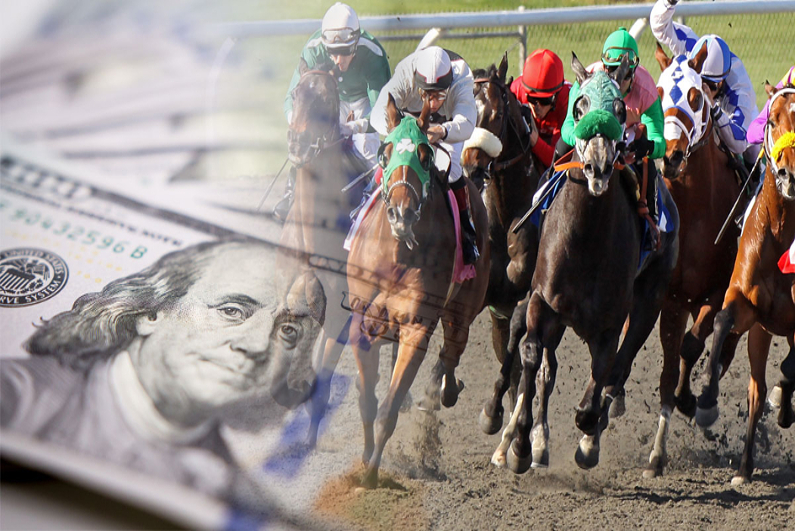
Since the advent of television horse racing has become more exciting for betters. Where once races could only be heard on the radio, now a gambler can watch their chosen horse race across the finish line in first place on full-color television as the race is being run.
Sports bars and other drinking establishments quickly learned that one of the ways to entice their patrons to drink more and stay longer was to provide televisions to watch while sipping on their favorite beverage. It wasn’t long before restaurants with liquor licenses followed suit. Patrons could enjoy a pleasant dinner with drinks and watch the horse races. This became a win-win situation for both the restaurant and the diners.
Watching on television in the comfort of a gambler’s own home made horse racing even more accessible. The days of going down to the local betting shop to bet and then staying to see the results are long since gone. Now a gambler can not only watch the horses live on television at home but can also place their bets via the Internet. A gambler has the advantage of not standing in line to place a bet. It couldn’t get much easier for the horse racing enthusiast.
Weather conditions can have an impact on how well a horse will run in any given race. Some horses do extremely well on soft dirt, while others excel on harder turf. Rain can turn a hard track into one that is muddy and difficult to run on. Provided the track has not turned into complete mud races will still run. This can spell disaster for a horse that is not suited to a wet track, but can be a huge advantage to one who loves to run in the rain. The impact on the gambler can have a similar effect, and gamblers should bet accordingly.
Under certain circumstances a horse racing event will be ‘rained off’ if the track becomes dangerous for both horses and riders. A twisted leg could lead to disaster, with both horse and rider at risk of being trampled by the other horses. This of course is not something the race course owners want to happen, and certainly not desired by the owners of the horses, who have invested large sums of money into training and racing. Though the race course will disappoint many betters and race horse owners alike, the possible death of an expensive horse, or a jockey, is not worth the price.
The horse racing season can run all year long, giving the chance for new horses to enter their first races in the spring, gain some experience over the summer and autumn and then return to training over the winter months in preparation for the following spring. The official season for each country varies due to nature’s seasons and not all countries hold horse races year round.
There are several different types of horse races. The most commonly enjoyed by viewers and gamblers alike involve a horse and rider galloping around a track for a pre-determined distance, with the first horse to cross the finishing line being declared the winner. Another form of horse racing is harness racing where the horse pulls a very lightweight cart (sulky) with a rider aboard. These races are run at a trotting or pacing gait, with horses being penalized if they break into a gallop and remain running that way for an extended length of time.
Arabian horse racing is less common in the United States and Great Britain, but in the Middle East it is very common for these hardy small horses to run races, with high stakes and a large win for the successful first place getter’s owner. One of the most difficult races for any horse to run is the steeplechase. The Grand National, the most famous of United States horse races, is such a race. Steeplechase racing requires a ridden horse to not only run at a full gallop but also to clear brush fences at regular intervals around the track. It is arguably the most dangerous type of horse racing and has accident statistics to prove it.
All forms of horse racing carry significant risk and expense. A fall can be catastrophic and costly both financially and physically. Horses require being euthanized when the injuries sustained are substantial, but for some horses, although their racing career may have ended due to an accident, good bloodlines will ensure they continue to live a productive life siring or birthing the next greatest race horse. Bloodlines are an important consideration for gamblers and do factor into their betting choices.



Leave a Comment